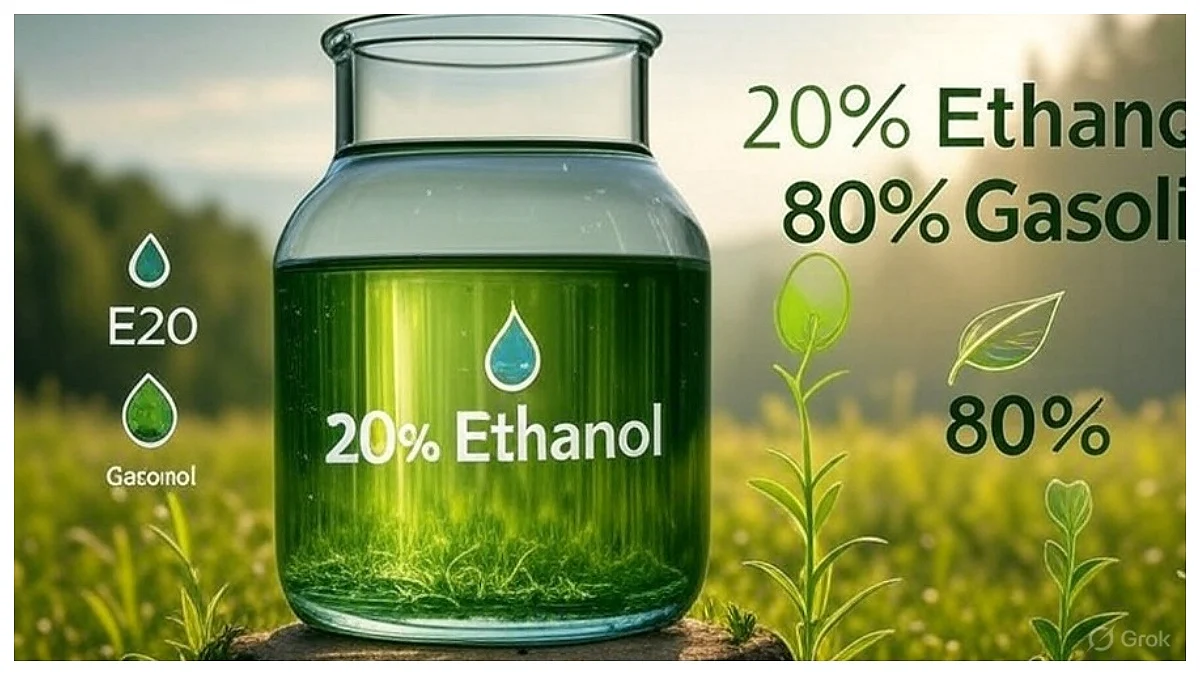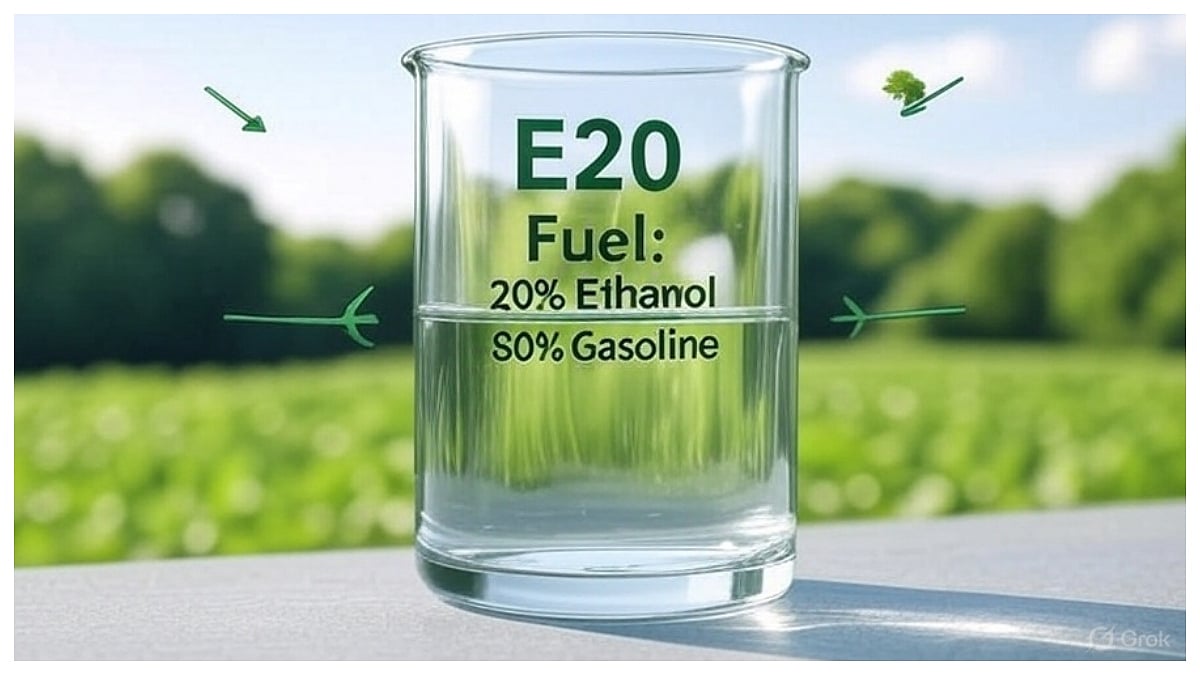E20 fuel is a new type of petrol that contains 20 percent ethanol and 80 percent regular petrol. The Indian government is pushing this fuel as part of its ethanol blending programme to reduce dependence on imported petrol and promote cleaner energy. While the move aims to help the environment and support farmers, many vehicle owners are unsure how it might affect their cars and costs.
Does E20 fuel make petrol cheaper?
Surprisingly, E20 hasn’t made petrol cheaper for customers. Earlier, ethanol used to be cheaper than petrol. But now, the average cost of ethanol is actually higher. So even though E20 uses less petrol, the overall price at the pump hasn’t gone down.
How does it affect your vehicle’s performance?
Ethanol has a higher octane number, which can lead to better engine performance in newer cars made for E20. Some people might notice more torque or smoother driving if the engine is tuned correctly. But ethanol also has lower energy content than petrol, so fuel efficiency may drop slightly.
Will mileage be affected?
Yes, mileage could go down. Government tests say that in newer, E20-compatible vehicles, fuel efficiency drops by 1–2 percent. But older cars, specially those made for E10 or less, may lose 3–6 percent mileage. In day-to-day use, you may find yourself filling up more often, specially if your vehicle is older.

Image generated by Grok |
What about damage to the engine?
Ethanol can absorb water, which can lead to rust and corrosion. Over time, it can damage parts like fuel pumps, injectors, and rubber seals. This is a bigger problem in older cars and in humid or coastal areas. The government says older vehicles may need rubber parts replaced after 20,000–30,000 km.
Will maintenance costs go up?
Yes, older vehicles may need more frequent servicing. Fuel system cleaning and injector maintenance could become more common. Additives might help a little, but they won’t fix the root problem of long-term compatibility.
Is your car still under warranty?
Some carmakers are still deciding how to handle this. A few have said they might modify older models for E20 use, but that could cost extra. Others haven't made any promises yet.
What’s the bigger benefit for the country?
Since 2014–15, India has saved over Rs 1.40 lakh crore in foreign exchange by using more ethanol. Farmers have earned Rs 1.20 lakh crore by selling crops for ethanol, which helps rural jobs and income.




